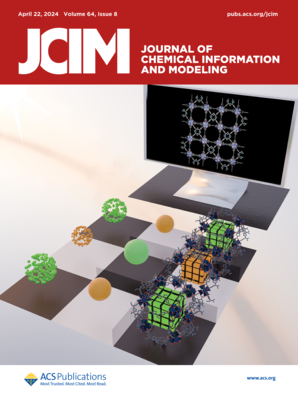Development and Validation of an Automated DNA-Encoded Library Screening Data Analysis Platform: PB-DEL Autoscreening Analysis (PB-DELASA).
IF 5.3
2区 化学
Q1 CHEMISTRY, MEDICINAL
引用次数: 0
Abstract
Tools available for analyzing next-generation sequencing (NGS) data produced from DNA-encoded library (DEL) screening campaigns are often constrained to customized methods developed internally by individual institutes, which usually generate data specifically focusing on protein-ligand interactions and based on distinguished criteria of compound recommendation. Existing approaches do not consider sequencing depth, sequencing error, and quality control when identifying candidate compounds. The analysis processes and criteria of compound recommendation for off-DNA synthesis and confirmation are highly time-consuming and subjective, significantly hindering the application of DEL screening in novel drug discovery. Here, to address these challenges, we developed an integral, accurate, and automated analysis workflow containing the tractability of the building blocks and DNA tags in split-and-pool cycles, 2D and 3D plots, and an enriched compound list, which was constructed based on computational analysis, artificial intelligence, and the experiential knowledge of medicinal chemists. This automated and standardized workflow was further validated through a showcase screening campaign on a novel antitumor target of CDK9. Novel hit compounds with high potency and selectivity were identified efficiently with minimal synthesis effort. The source code is available at https://github.com/kelly1210/PB-DELASA.自动dna编码文库筛选数据分析平台的开发和验证:PB-DEL自动筛选分析(PB-DELASA)。
用于分析dna编码文库(DEL)筛选活动产生的下一代测序(NGS)数据的工具通常局限于单个研究所内部开发的定制方法,这些方法通常生成专门关注蛋白质-配体相互作用的数据,并基于不同的化合物推荐标准。现有的方法在鉴定候选化合物时没有考虑测序深度、测序误差和质量控制。off-DNA合成和确认推荐化合物的分析过程和标准耗时长、主观性强,严重阻碍了DEL筛选在新药发现中的应用。在这里,为了解决这些挑战,我们开发了一个完整、准确和自动化的分析工作流程,其中包含了分裂和池循环中构建块和DNA标签的可追溯性,2D和3D图,以及基于计算分析、人工智能和药物化学家经验知识构建的丰富化合物列表。这种自动化和标准化的工作流程通过一种新的抗肿瘤靶点CDK9的展示筛选活动得到了进一步的验证。以最小的合成代价,高效、选择性地鉴定出新的命中化合物。源代码可从https://github.com/kelly1210/PB-DELASA获得。
本文章由计算机程序翻译,如有差异,请以英文原文为准。
求助全文
约1分钟内获得全文
求助全文
来源期刊
CiteScore
9.80
自引率
10.70%
发文量
529
审稿时长
1.4 months
期刊介绍:
The Journal of Chemical Information and Modeling publishes papers reporting new methodology and/or important applications in the fields of chemical informatics and molecular modeling. Specific topics include the representation and computer-based searching of chemical databases, molecular modeling, computer-aided molecular design of new materials, catalysts, or ligands, development of new computational methods or efficient algorithms for chemical software, and biopharmaceutical chemistry including analyses of biological activity and other issues related to drug discovery.
Astute chemists, computer scientists, and information specialists look to this monthly’s insightful research studies, programming innovations, and software reviews to keep current with advances in this integral, multidisciplinary field.
As a subscriber you’ll stay abreast of database search systems, use of graph theory in chemical problems, substructure search systems, pattern recognition and clustering, analysis of chemical and physical data, molecular modeling, graphics and natural language interfaces, bibliometric and citation analysis, and synthesis design and reactions databases.

 求助内容:
求助内容: 应助结果提醒方式:
应助结果提醒方式:


